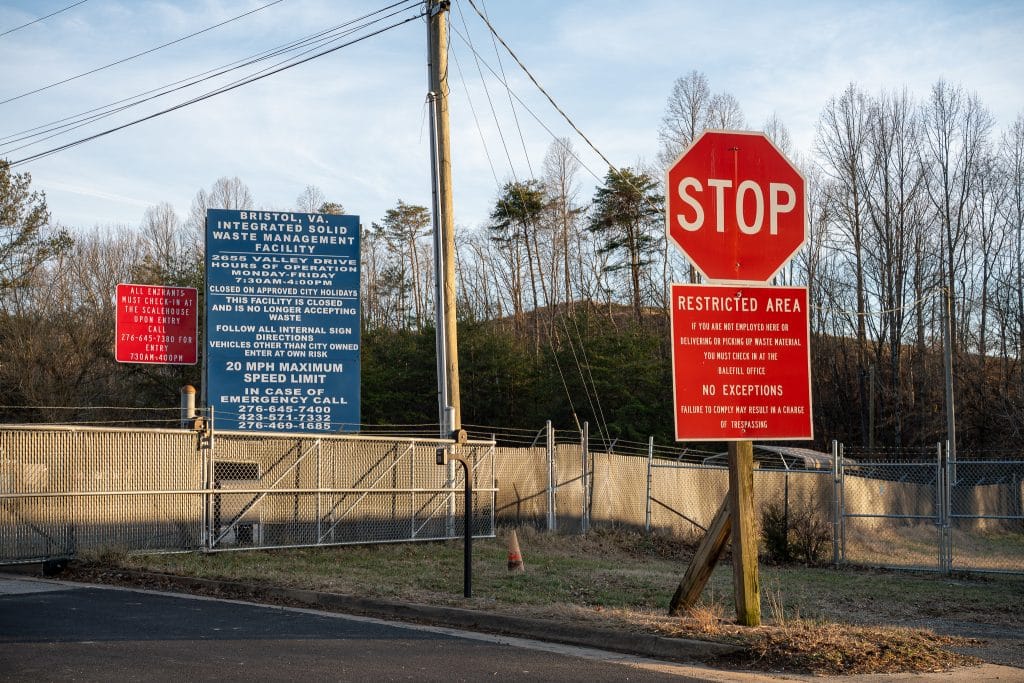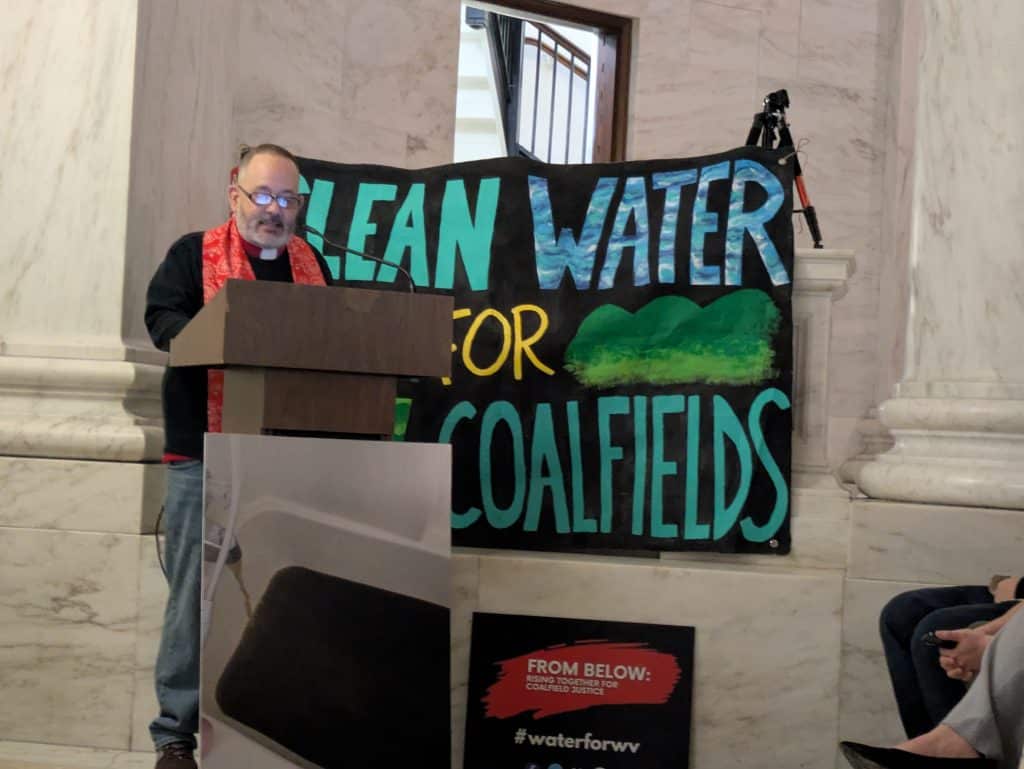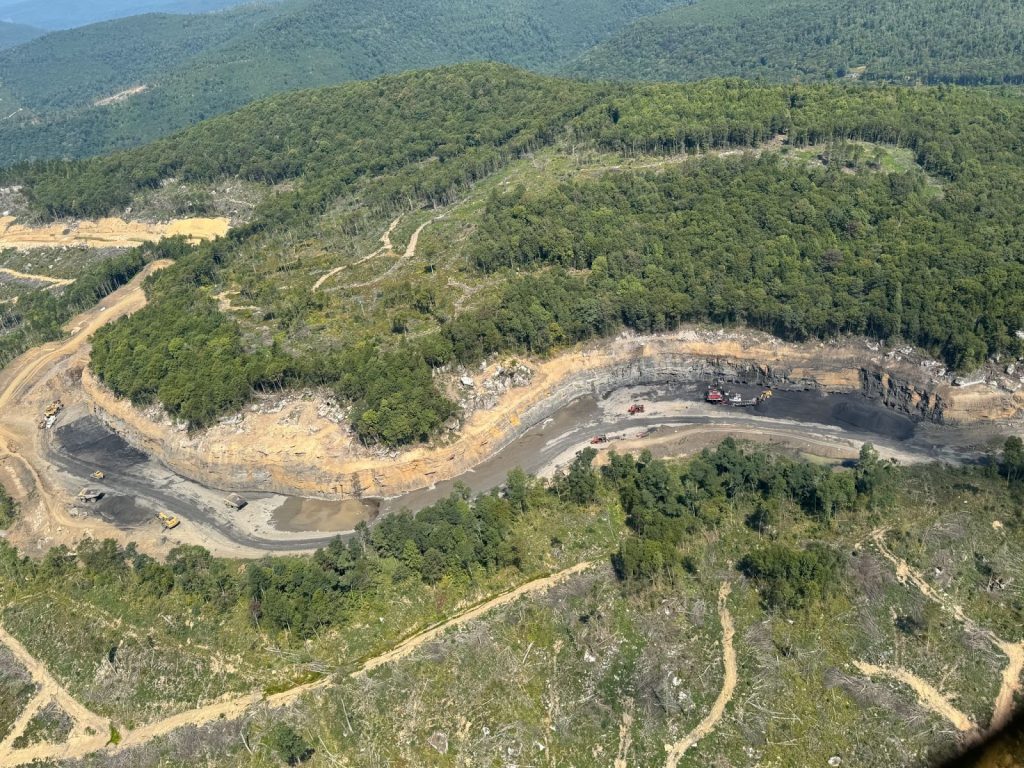Letters to the Editor
Appalachian Voice welcomes letters to the editor and comments on our website. We run as many letters as possible, space permitting. The views expressed in these letters, and in personal editor responses, are the opinions of the authors and are not necessarily the views of the organization Appalachian Voices. Write to editor@appvoices.org.
Mountaintop Removal – Flyover Is Worth 1000 Words
Dear sir,
I am writing to voice my say regarding banning mountaintop removal. I hope efforts are under way to get President-elect Obama to totally ban mountaintop removal. If it has not been done I suggest former V.P. Al Gore be contacted to get it done before the affected area becomes a total waste land – get Obama to fly over the area to see for himself the destruction that is being done – a picture is worth a 1000 words, especially a personal eye ball picture.
Thank you for you efforts to keep our mountains like God intended for them to be.
Sincerely,
John Ferrill
Lenoir, NC
An Inclusive and Diverse Future Appalachia
Dear Appalachian Voices,
I salute Dr. Jeff Boyer who wrote on the future of Appalachia in the last issue. Acknowledging that Appalachia is growing to be a very ethnically and racially diverse region, Dr. Boyer called for a broadening of the “Appalachia we” and for building a new, more inclusive “we.”
How fitting it would have been if the visionaries chosen to share their thoughts had reflected this growing diversity, this changing “we.” According to the Appalachian Regional Council (ARC), well over 3 million Appalachians are people of color and I would very much like to hear these voices share their vision of Appalachia’s future. I agree that we in Appalachia are at a tipping point. This is all the more reason to expand the circle of sharing, visioning and planning.
Thanks for all you do!
andrea van gunst
The Third Raping of Appalachia
Dear Editor:
This is in response to a letter to the editor by Gerry Grantham, Range Resources/Pine Mountain Gas and Oil out of Texas. While it is true that Southwest Virginia holds some of the purest gas reserves in the nation, Mr. Grantham is way off-target when writing of the benefits of natural gas to the residents of Appalachia.
Range Resources/Pine Mountain Gas and Oil are one of several companies that raced to Southwest Virginia to explore and produce natural gas because in this area the gas industry only has to pay $5 per acre to the land owner for a gas lease for five years (Dickenson County) and only $1 per acre for a lease for five years in Buchanan County. Also, the gas companies only have to give the land/gas owner a small royalty payment for their gas. Compared with $20,000 plus, per leased acre and up to 30% in royalties in other states, doing business in Southwestern Virginia is a very sweet deal.
The gas industry is not held to regular environmental protection standards as many other industries are. While clearing land to accommodate the well, holding tanks, pipelines, etc., the land is stripped bare and acres of hardwood trees are dozed down the mountainside to lie and rot. Supposedly the land owner would get a payment for his trees called a “destruction” payment; however, dozer operators place the trees in inaccessible areas so the land owner cannot get to them.
There exists no regard for ecosystems, roadways and waterways. At one gas well in Dickenson County, fifty thousand gallons of a solution called “BRINE” was spilled. Other gas wells had numerous spills. Again there was no fine or reprimand levied onto the offending gas company.
When a land/surface owner also owns the minerals (gas, oil, and coal) under his surface and does not wish to have the gas company trespass upon his land, the gas company that wants the gas under the land then goes to the Virginia Gas and Oil Board and asks the Board to issue a “forced pooling order.” The Board never disallows the request!
The owner is notified that he will be “force pooled” and there is nothing he can do about it. His right to negotiate a fair market price has been stripped from him. He gets pennies or nothing for his minerals.
When Mr. Grantham referred to environmental organizations such as Sierra Club endorsing the cleanest burning fossil fuel available, he was correct when speaking only about coal bed methane or conventional gas. What Mr. Grantham failed to mention was the despicable ways in which the people are treated by the gas companies.
Sierra Club representatives were here and witnessed the total destruction of mountaintops, ecosystems, waterways, roadways, and the demoralization of humanity by gas companies attempting to get at the vast rich reserves underground.
The people are poorer because of the rich gas finds in the area. They are exploited, lied to, cheated, deceived, and simply run over by gas companies.
There is a feeling of hopelessness and helplessness among the people. Eleven percent of the population of Dickenson and Buchanan counties have fled. Suicide rates have risen. When all you have left is a plot of land and that, too, is taken, what is left?
This is the largest “taking” in the history of the nation, endorsed and sanctioned by the Virginia legislature.
Juanita Sneeuwjagt
Clintwood, Va
Cumberland Park Fly Ash, Giles Virginia
Dear Editor,
The Cumberland Park Fly Ash Project, located on the 100-year flood plain of the New River in the town of Narrows, Giles County, Virginia is an environmental abomination. Here’s what this means.
Over 250,000 cubic yards of coal ash is being dumped right next to the New River. The heavy metals and toxins will leach out when rain, highway runoff, and other water comes in contact with the dump. At best, flooding will leach toxic heavy metals into the river and groundwater at some point in the future. At worst, the contamination will start to occur immediately.
American Electric Power (Appalachian Power Co.) and a not for profit school foundation created the project. Under state environmental regulations, this dump can avoid stricter permitting requirements otherwise required for hazardous waste sites (which require more protections and oversight) because a “beneficial end use” is proposed. The project presumes that the fly ash can be used safely as a construction material, and that, one day, some commercial enterprises would want to purchase the real estate on top of the dump. Proposed profits from this project are designated to go to the Giles County School Board to benefit the local schools. This begs the question of how future generations of children in Giles County will actually benefit when the project promises to pollute their community and endanger their wellbeing.
One might ask the Giles County School Board, since it is supposed to have significant oversight of the Foundation’s activities. When such questions were presented at numerous public meetings, the board apparently had no answers, since they’d never heard of the project, and claimed not to have any authority to do anything about it.
Though many may argue that if no laws are being violated, and the majority of elected local officials appear to have granted their tacit approval, and there is at least some payment for the hazards to which the community will be subjected, that there is no foul. This avoids some of the serious questions that surround the inception of this project. The first is that Howard Spencer, Executive Director of the Partnership for Excellence when the project was proposed and begun, was also the Chairman of the Giles County Board of Supervisors. He’s also the town manager and town clerk of Glen Lyn where the AEP-owned coal-fired plant is located, and which is the major employer of his constituency. This apparent conflict of interest was never addressed as the Board of Supervisors approved the project. No public input was ever sought. Indeed, by saying that the project has a beneficial end use, state regulations did not require any public discussion of the plan.
Because the community-at-large was completely by-passed in any discussion of the potentially disastrous effects of this project on Giles County, including the impact on future recreational tourism, the welfare of the citizens, contamination of the ground water table and the health of the New River in Virginia and West Virginia, a grass-roots resistance formed the Concerned Citizens of Giles County. www.concernedgilescitizens.org
Last year, the Concerned Citizens requested a court hearing to determine if the Cumberland Park Fly Ash project could legally be considered a public nuisance. A Special Grand Jury convened in Giles County and rendered a decision in favor of the project, claiming all regulations had been met. The grand jury, however, made its decision without hearing the testimony of the five citizens who filed the public nuisance law suit.
This did not stop the Concerned Citizens which has started the second phase of a three phase assault against the project.
The first phase began December 4, 2008 when we drilled our own water testing wells. We believe that when the results are in, we will be able to get regulatory bodies to protect us at last.
Phase Two involves an examination of county zoning ordinances which mandate public hearings for rezoning. If the project had been presented to the public for review as required by county ordinance it is doubtful that it would exist. As a guardian of the public trust, Howard Spencer had the ethical and moral duty to open this project to public review.
Phase Three concerns further legal action to stop fly ash dumping from the flood plain on the banks of the New River. The winds of change are blowing to Giles County from Washington, D.C., and the promise of a new and meaningful environmental policy will bring justice back to Giles County.
This is our home, and the New River is our heritage. It’s only a matter of time before the we stop the disastrous Cumberland Park Fly Ash Project.
James A. McGrath
Chair, Concerned Citizens of Giles County VA
Related Articles
Latest News

Leave a comment
Your email address will not be published. Required fields are marked *





Leave a Comment